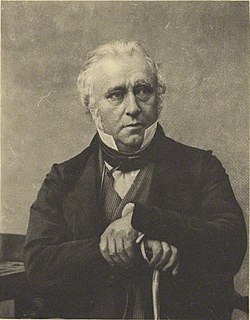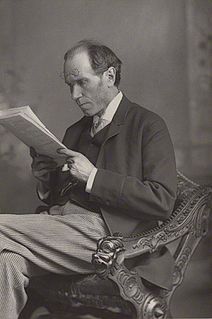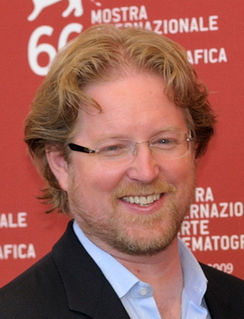A Quote by Thomas Babington Macaulay
There is surely no contradiction in saying that a certain section of the community may be quite competent to protect the persons and property of the rest, yet quite unfit to direct our opinions, or to superintend our private habits.
Related Quotes
Without justice being freely, fully, and impartially administered, neither our persons, nor our rights, nor our property, can be protected. And if these, or either of them, are regulated by no certain laws, and are subject to no certain principles, and are held by no certain tenure, and are redressed, when violated, by no certain remedies, society fails of all its value; and men may as well return to a state of savage and barbarous independence.
We are bound to maintain public liberty, and, by the example of our own systems, to convince the world that order and law, religion and morality, the rights of conscience, the rights of persons, and the rights of property, may all be preserved and secured, in the most perfect manner, by a government entirely and purely elective. If we fail in this, our disaster will be significant, and will furnish an argument, stronger than has yet been found, in support of those opinions which maintain that government can rest safely on nothing but power and coercion.
All the controversialists who have become conscious of the real issue are already saying of our ideal exactly what used to be said of the Socialists' ideal. They are saying that private property is too ideal not to be impossible. They are saying that private enterprise is too good to be true. They are saying that the idea of ordinary men owning ordinary possessions is against the laws of political economy and requires an alteration in human nature.
The great have private feelings of their own, to which the interests of humanity and justice must curtsy. Their interests are so far from being the same as those of the community, that they are in direct and necessary opposition to them; their power is at the expense of OUR weakness; their riches of OUR poverty; their pride of OUR degradation; their splendour of OUR wretchedness; their tyranny of OUR servitude.
People with what we call mental illness can indeed serve well, and people who have no discernible mental illness - and that may be true of Trump - may not be able to serve, may be quite unfit. So it isn't always the question of a psychiatric diagnosis. It's really a question of what psychological and other traits render one unfit or dangerous.
But what of the voice and judgment of conscience? The difficulty is that we have a conscience behind our conscience, an intellectual one behind the moral. ... We can see quite well that our opinions of what is noble and good, our moral valuations, are powerful levers where action is concerned; but we must begin by refining these opinions and independently creating for ourselves new tables of values.
It is ordinarily said that criminal law is designed to protect property and to protect persons, and if society's only interest in controlling sex behavior were to protect persons, then the criminal codes concerned with assault and battery should provide adequate protection. The fact that there is a body of sex laws which is apart from the laws protecting persons is evidence of their distinct function, namely that of protecting custom.
We all fall into our habits, our routines, our ruts. They're used quite often, consciously or unconsciously, to avoid living, to avoid doing the messy part of having relationships with other people, of dealing with a person next to us. That's why we can all be in a room on our cell phones and not have to deal with one another.
All of the services commonly thought to require the State-from the coining of money to police protection to the development of law in defense of the rights of person and property-can be and have been supplied far more efficiently and certainly more morally by private persons. The State is in no sense required by the nature of man; quite the contrary.







































